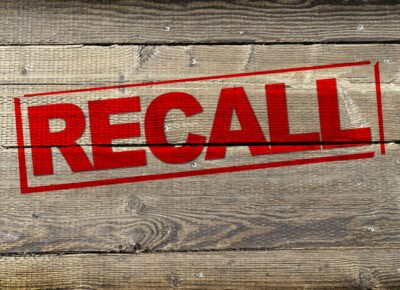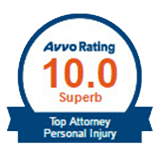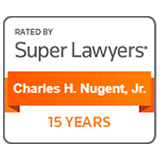Products that we use every day and assume are safe can cause serious injuries and even death. Injuries from dangerous products can occur when a product is designed defectively, manufactured improperly, or if the product manufacturer or distributor fails to provide adequate warnings of potential dangers. Everyday products meant to improve our lives can harm us. Examples of defectively designed or manufactured products that can cause injuries include exploding soda bottles, car brakes that don’t engage, smoke alarms that don’t work, and space heaters that cause fires. Prescription drugs, medical devices like pacemakers or joint replacement materials, lawn mowers and even toys can cause horrible injuries. New Jersey has laws to give relief to people whose well-intended trust in a manufacturer or seller is violated when they get hurt because of defective or dangerous products.
WHAT IS THE LAW ON PRODUCTS LIABILITY IN NEW JERSEY?
The New Jersey Products Liability Act is a well-established law that permits an injured person to recover damages if they can prove that the product they claim has harmed them was not “reasonably fit, suitable or safe for its intended purpose” because that product
Contained a manufacturing defect,
Was designed in a defective manner, or
Failed to provide adequate warnings or instructions
In these types of claims, the injured party must prove that the defect or failure to warn was the “proximate” cause of the accident. Proximate cause only means that it was a “substantial factor” which alone, or in combination with another cause or causes, brought about the accident.
WHO CAN RECOVER UNDER PRODUCTS LIABILITY LAW?
The injured person in a product’s liability action need not be the actual purchaser of the defective or unsafe product. New Jersey law holds that defendants in these cases owe a duty to make or sell a reasonably safe product, and that duty extends to the product’s direct users and anyone who may reasonably be expected to come into contact with the product.
WHAT DO YOU NEED TO PROVE IN A PRODUCT LIABILITY CLAIM FOR A MANUFACTURING DEFECT?
To prevail on a manufacturing defect claim, the plaintiff must prove that the product deviated from the design specifications, formulas, or performance standards of the manufacturer or from otherwise identical sorts of products. In other words, the item was designed correctly, but was defectively made, causing a hazard. One example is a tire designed to withstand normal driving conditions but manufactured with flawed rubber that falls apart with heat and friction.
WHAT DO YOU NEED TO PROVE IN A PRODUCT LIABILITY CLAIM FOR A DESIGN DEFECT?
In a design defect claim, the plaintiff “must prove either that the product’s risks outweighed its utility or that the product could have been designed in an alternative way so as to minimize or eliminate the risk of harm.” An example of a design defect is a baby toy designed with dimensions that create a choking hazard if chewed by an infant.
One defense to a design defect claim is the “state of the art” argument, where the defendant must prove that the technological state of the art at the time the product left the defendant’s control did not permit any reasonably safer design.
WHAT DO YOU NEED TO PROVE IN A PRODUCT LIABILITY CLAIM BASED ON FAILURE TO WARN?
In a failure to warn claim, the plaintiff must prove that the defendant manufacturer or seller did not provide an adequate product warning or instruction about possible hazards, either at the time the product was sold/distributed or afterwards (afterwards, meaning if the defendant discovered the danger after the product was sold or distributed and had sufficient time before the accident or injury so that they should have issued a supplemental warning). An example of failure to warn includes a diabetes drug that causes heart damage but does not notify doctors, pharmacists or the public of this risk in the list of potential side-effects and adverse effects.
Warnings or instructions may consist of statements that a product should
- not be used at all under certain circumstances,
- be used only in a particular way, or
- be used with particular care
Warnings or instructions may be in the form of words, symbols or pictures to effectively convey the information essential to make the product’s use reasonably safe.
HOW DOES COMPARATIVE FAULT AFFECT PRODUCTS LIABILITY CASES?
Defenses to products liability claims include comparative fault, where the defendant proves that the plaintiff deliberately and knowingly acted in such a way as to create or substantially increase a risk of injury and that such action was the direct and immediate cause of the accident. Examples of a plaintiff’s comparative fault include misuse of the product (think of using heavy machinery without the recommended safety precautions or gear on a steep incline) or significantly altering the product (such as rewiring an electric appliance or removing safety guards from a machine).
If plaintiff and defendant both are found to be at fault in causing the accident or injury, their responsibility must be compared in terms of percentages. In order for the plaintiff to recover against any defendant in New Jersey, plaintiff’s percentage of fault must be 50% or less. In such cases, the losses or costs of the accident are apportioned between the plaintiff and defendant according to their percentage of fault. If the plaintiff’s percentage of fault is more than 50%, they cannot recover anything.
WHY SHOULD YOU RETAIN AN EXPERIENCED ATTORNEY TO PURSUE A CLAIM UNDER NEW JERSEY PRODUCTS LIABILITY LAW?
At Nugent Law, our New Jersey personal injury attorneys can protect your rights to compensation and pursuit of your products liability claims under New Jersey law by performing the following services:
- Gathering official reports, witness statements, accident reconstruction, and other documents to gather evidence;
- Hire leading experts or professionals to help establish liability against a defendant;
- Obtaining your medical records and working with treating physicians to build a damages case;
- Aggressively seek to settle your case against an unwilling insurance carrier or defense lawyer, advocating for a fast and fair resolution for you and your family;
- Seeking your legal remedies in court when a defendant or the insurance company will not play fair;
- Exercising all your legal rights in discovery, trial, appeals, and other proceedings, and
- Helping victims and families in New Jersey in any way possible after the negligence of another person, business, or government entity in a products liability-related accident or injury situation
Injured in NJ? The Choice is Clear: Call Nugent Law
Serving this region for more than 34 years, Nugent Law is dedicated to protecting the rights of injured people and their families. We have fought back against some of the largest companies, insurance carriers and defense law firms in the United States. Learn how we can help you recover compensation for medical bills, lost wages, pain and suffering, and other damages during a FREE consultation by dialing (856) 596-9770. You can also send us a private and confidential message on our “contact us” box available here.













